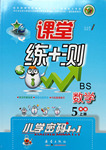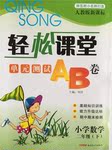题目内容
D
Some people may be born happy, while others are genetically negative, scientists have suggested in a study published late February in a British journal.
Earlier research had already established that the gene known as 5-HTTLPR plays a key role in determining how the neurotransmitter (神经传递素) serotonin works within the brain. Serotonin, a hormone (荷尔蒙), passes chemical messages between nerve cells. It has been closely linked to mood. Several anti-depressant (抗抑郁) drugs regulate serotonin levels.
Scientists had also identified three variants (变体) of the gene. Two so-called “short” variants were linked to a higher risk of depression and suicide (自杀) attempts. Unlike the two “short” variants, the “long” variant of 5-HTTLPR showed a clear dislike of negative images, such as fierce animals, and a clear liking for positive ones, such as flowers.
Researchers from the University of Essex in Britain showed participants a series of images, which were divided into three kinds: negative ones aimed at inspiring fear or stress such as a snake or person about to commit suicide, pleasant ones and neutral (中性的) ones.
The participants who had the long variant of the 5-HTTLPR gene “showed a clear dislike of negative material alongside a careful attention for positive material,” the researchers found. They paid close attention to the pretty pictures, and ignored the frightening ones. On the other hand, the short variant groups had the opposite reaction.
In January, the Australian government organized “happiness workshops”, teaching government staff how to be happy. The department that held the “happiness workshops” said unhappy staff weren’t productive staff.
Australian political opposition parties have argued that the “happiness workshops” are probably a waste of money and couldn’t increase productivity as intended. However, whether the workshop will have a happy or disappointing result, we will have to wait and see.
71. Various kinds of images were shown to the participants to .
A. draw their attention
B. cater to their different tastes
C. find out about their reactions
D. teach them to improve their artistic appreciation
72. The “short” variants of 5-HTTLPR differ from the “long” variants of 5-HTTLPR in that_____.
A. the former is connected with positive mood while the latter negative
B. the former is connected with negative mood while the latter positive
C. the former has a greater effect on one’s mood than the latter
D. the latter has a greater effect on one’s mood than the former
73. Which of the following statements is true about “happiness workshops”?
A. Most people believe that they are a waste of money.
B. They will be beneficial in the long run.
C. The purpose of “happiness workshops” is to teach all Australians to be happy.
D. They are organized in the belief that happy staff can work more efficiently.
74. It can be learned from the article that .
A. drugs can be used to control people’s serotonin levels
B. happiness is more important than sadness
C. nothing can affect our mood
D. people with the short variant of 5-HTTLPR prefer a flower to a snake
75. The article is mainly about .
A. the reason for the foundation of “happiness workshops”
B. the link between people’s mood and their gene
C. the study on people’s likes and dislikes
D. the differences in people’s attitude towards life
71—75 CBDAB
解析

 课堂练加测系列答案
课堂练加测系列答案 轻松课堂单元测试AB卷系列答案
轻松课堂单元测试AB卷系列答案